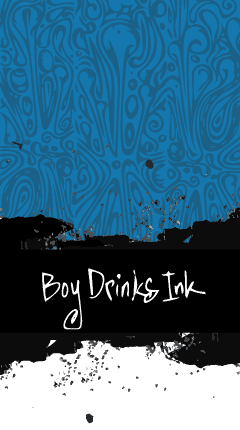
Zeellia
Tse Tak Bulo (That's How it Was)
Album Release Date: April 2nd, 2016
Tse Talk Bulo cover design by Lori Elling/Prairie grass photo by Nik Dobrinsky - Chickweed Productions 2016
It's a pleasure to witness a mature artist like Beverly Dobrinsky continue to creatively blossom later in her career. Originally from Winnipeg, but based in Vancouver for the last forty-some-odd years, Dobrinsky continues to front Canadian folk ensemble Zeellia since founding the group in the early 1990s. As a second generation Canadian-born descendant of Ukrainian immigrants, the language and much of her cultural heritage wasn't passed on to her from her parents or grandparents due to the racism and assimilation that they experienced. So Dobrinsky's aim with the formation of Zeellia was manifold; from a personal standpoint, Zeellia was a creative avenue through which Dobrinsky could explore her Ukrainian roots and regain some of the cultural ethos that had been lost to her, by studying the music, stories, and customs of the old country. And artistically, the group was an opportunity to fuse traditional melodies and folk narratives with more contemporary styles.
In 1994, Dobrinsky traveled through the Canadian prairie provinces meeting with the elderly sons and daughters of Ukrainian immigrants, and recorded them singing songs that they were taught by their parents. She then constructed these songs into contemporary arrangements, fusing the old with the new, resulting in something singularly profound in sound and substance which Dobrinsky dubs "slavic soul". This is Zeellia's third album to date, returning after a twelve-year hiatus since their previous recording, and the result is well worth the wait. Entitled Tse Tak Bulo in Ukrainian which translates into That's How it Was, this album features what the previous two didn't: the actual voices of the Ukrainian immigrants who she recorded, talking and singing, over twenty years ago. These voices are effectively scattered as short interludes between the songs throughout the album—ancestral voices reflecting on the immigrant experience.
The result is a kind of a concept album, bringing Dobrinsky's work with Zeellia full circle, back to the source from where much of the material was first gathered. The voices of the several people Dobrinsky interviewed, only one of whom is still living today, resonate as potent ghostly echoes of the past, now brought to the present. In a few instances these recordings of the immigrants' a cappella singing lead right into the new Zeellia album versions, highlighting and contrasting the musical qualities and themes of the old with those of the new. And these themes, we immediately discover, are timeless and universal. Musings on nature, work, romance, love, loss, and hardship abound, with thematic parallels to other music genres such as HipHop and country clearly emerging. The music doesn't parallel these genres, but the subject matter most certainly does—just as HipHop and country, especially early on in their evolutionary trajectories, were forms of folk music—with common topics of violence, substance use, poverty, and heartbreak.
The song "Oy Byw Mene Cholovik" translates as "My Husband Beat Me", and so Zeellia holds nothing back in capturing the often harsh realities faced by immigrants and the poor. This particular song is a stunning nearly a cappella track—with only one sparsely used clapping percussion instrument—featuring complex harmonies and overlapping vocals by Zeellia's four main singers. Longtime Zeellia members Carmen Rosen and Alison Jenkins, and relative newcomer Tetiana Zaruba (from Ukraine) join Dobrinsky on vocals. Jenkins doubles as the band's accordion player, joined by the group's other longtime instrumentalists Russell Sholberg on standup bass and Amelia Slobogean on violin. This is the first Zeellia album featuring the hurdy gurdy—played by Dobrinsky—an exotic instrument with centuries-old traditions in Europe, providing a riveting, hypnotic sound that contributes to the album's overall rich aural texture. All the players here are consummate musicians.
As many as there are slow-paced, haunting songs about hardship and struggle, there are just as many upbeat numbers, such as "Oy Tam U Poli (There in The Field)", "Zvjesda Tjera Mjeseca (Day Breaks)", and perhaps the album's most danceable tune, simply entitled "Gypsy Song". At 19 tracks, including the aforementioned interludes, the work is well-paced overall, aesthetically and thematically, as it alternates between fast and slow, happy and sad, light and dark, hope and despair. This all makes for a well-rounded, cohesive work of art that is at once musically innovative, emotionally resonant, and culturally relevant, and calls for repeated listens.
• Nik Dobrinsky / Boy Drinks Ink
April 12th, 2016
The album is available for download on iTunes, or on hardcopy for order at www.zeellia.com


